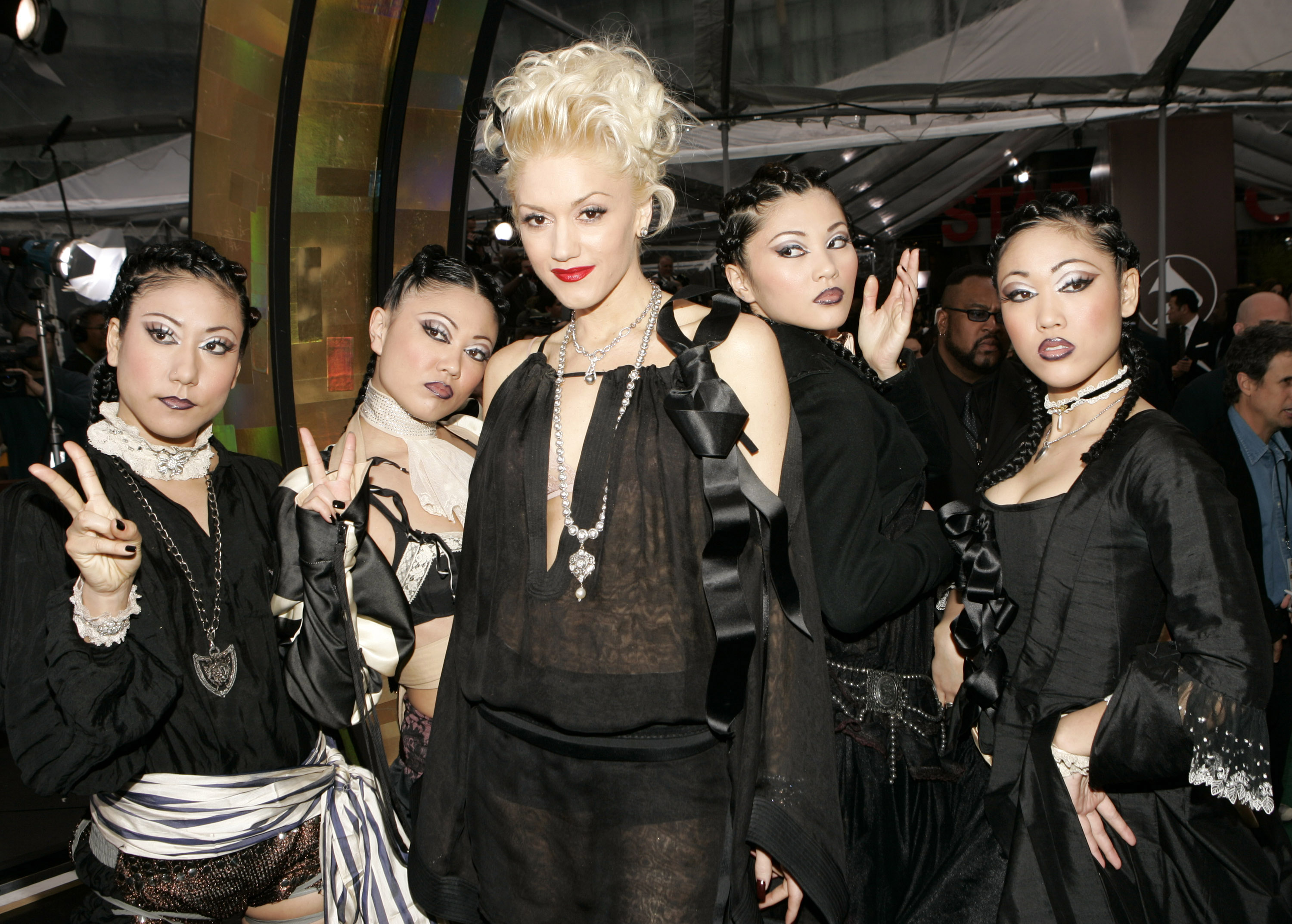

Gwen Stefani’s 2004 Love. Angel. Music. Baby. album was not only the hallmark of her soon-successful solo career but a flurry of cultural appropriation allegations that would tail her prominence. To brand her celebrity stature in tandem with her album, which included the questionable records “What You Waiting For” and “Harajuku Girls,” Stefani hired four Japanese backup dancers oft dressed in schoolgirl uniforms to accompany her appearances — leaving fans and critics alike raising brows at the fetishization of historically dangerous stereotypes and the use of the Tokyo district trendsetters for social capital. The former No Doubt frontwoman is finally airing her side of the story and seemingly refuting the longstanding claims.
In a cover interview with Paper magazine, Stefani, now 51, addressed her inescapable history by pointing to how cultures are intended to operate as melting pots. “We learn from each other, we share from each other, we grow from each other,” she said. “And all these rules are just dividing us more and more.” However, for those of Asian descent, the incorporation of the Harajuku Girls felt more like a stint that bolstered the hypersexualized and docile tropes of Asian women in the media. In a 2005 essay, Margaret Cho wrote, “I want to like [the Harajuku Girls], and I want to think they are great, but I am not sure if I can I mean, racial stereotypes are really cute sometimes, and I don’t want to bum everyone out by pointing out the minstrel show.” The actress and comedienne lamented the invisibility of Asian-Americans in the media and added: “Even though to me, a Japanese schoolgirl uniform is kind of like blackface, I am just in acceptance over it, because something is better than nothing.”
Entranced by Japanese culture since her childhood, Stefani said that the outset of her breakout career was largely inspired by it. “I never got to have dancers with No Doubt. I never got to change costumes. I never got to do all of those fun girl things that I always love to do,” Stefani continued. “So I had this idea that I would have a posse of girls — because I never got to hang with girls — and they would be Japanese, Harajuku girls, because those are the girls that I love.” The singer’s reference to her former background crew as “my homies” may pacify the decades-long criticism, but it doesn’t atone for her most recent stunt as a cultural chameleon. In her “Slow Clap” collab with rapper Saweetie, Stefani stokes the fire once again by donning gilded bamboo earrings, long acrylic nails and a full wrist of flashy jewelry, an obvious use of the round-the-way stylings invented by Black women.














